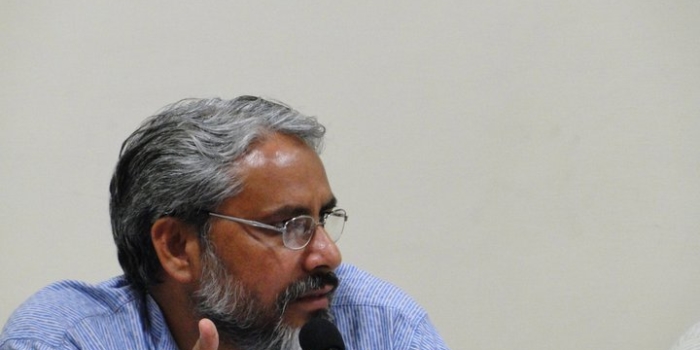2 October 2017
Memorandum
His Excellency Shri Ramnath Kovind JI
President
Republic of India
Most Respected Sir
Be it travel or freight transport, Indian Railways is the socio-economic lifeline of the country. Among the largest rail services in the world, Indian Railways is also the biggest public sector enterprise in the country. The British used the Railways very astutely to exploit the country in order to consolidate their empire. The railway services were built and expanded in free India with the view to strengthen communication/commutation networks, economy and defense networks. Invaluable resources and labour of crores of Indian people went into building the Indian Railways.
The total length of rail tracks is about 120,000 km. Out of this 28 thousand kilometers are used for the yards. On the remaining 92,000 kilometers tracks run trains. Total operational length of Indian Railways is 66,687 route kilometers. Out of this about 55,000 route kilometers was made by the British in pre-independence times. Thus, only 11,000 route kilometers has been expanded in 70 years of independence, which is negligible according to need. Out of 66 thousand route kilometers, 60 thousand route kilometers are broad-gauge lines. The remaining are narrow and meter-gauge lines. The task of changing narrow and broad-gauge lines into broad-gauge is not yet completed. Similarly, the work of doubling and tripling of tracks is also running very slow. However, the work of electrification of the railways has been relatively fast. In 1950-51, 7.5% of the total railway lines were electrified, which is now almost 36%.
So far the qualitative improvement of Indian Railways is concerned, the question of security comes to the fore. With every budget, the number of trains, freight and passenger traffic increases. Along with this there are decisions to increase the speed of trains. A decision to run bullet trains has also been taken by the government. But security, punctuality and facilities have not improved. The journey of trains has become a journey of accidents. Every year, on an average, 100 small and major accidents happen. In the year 2017, eight major rail accidents have occurred till date. Apart from train accidents, many people die in stampedes which happen on crowded platforms and bridges. The recent incident in Mumbai’s Elphinstone railway station is a recent example. The government promptly passed the project of a bullet train costing 1.20 thousand crore for the distance of 550 kms., but did not provide money for the construction of a new bridge in place of the old one built by the British in 1911 citing the excuse of lack of funds.
A safe, convenient and time-bound rail service is the first condition for the progress of the country. This is the government’s job to fill the lakhs of vacant positions, to lay new tracks as needed, to repair worn out tracks and to install proper technology in order to ensure safety, convenience and punctuality. But the government instead of fulfilling its responsibilities, is busy handing over the Railways to the capitalists. By the decision of merging the Railway Budget with the General Budget, and by the decision to sell railway stations/railway lines to private bidders in the garb of public-private partnership (PPP), the BJP has made a solid beginning of privatizing Railways.
The privatisation of Indian Railways is different from the privatisation of any other public sector undertaking. The Indian Railways is intrinsically connected with rural and urban economy, composite culture, education and internal security of the country. Therefore, any decision of privatization of Indian Railways in any form is anti-constitutional and anti-public. The Socialist Party has launched a nation-wide awareness campaign against the government’s decision to privatise Indian Railways. This campaign was inaugurated by a ‘Save Indian Railways’ march from Mandi House to Jantar-Mantar in Delhi on 22 June 2017. In that series a ‘Save Indian Railways Dharna’ was held today (2 October 2017) at Jantar-Mantar. We submit this Memorandum to you at the end of the dharna.
Being the custodian of the Constitution, we request you to repeal the decision of privatization of Indian Railways in any form. We are hopeful that you will take prompt and decisive action on this subject.
With utmost regards
Yours faithfully
Dr. Prem Singh
—













